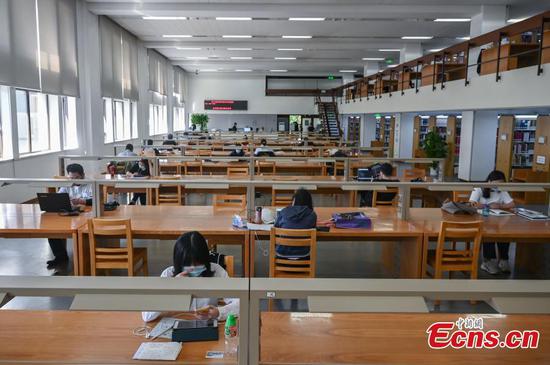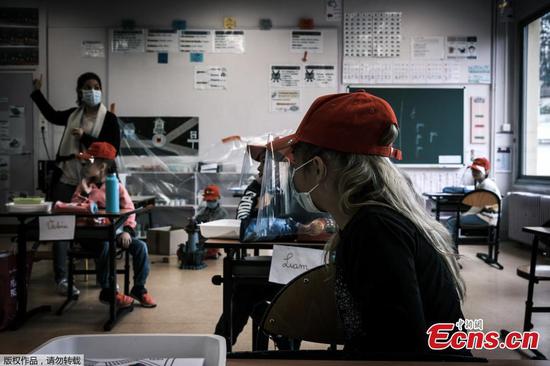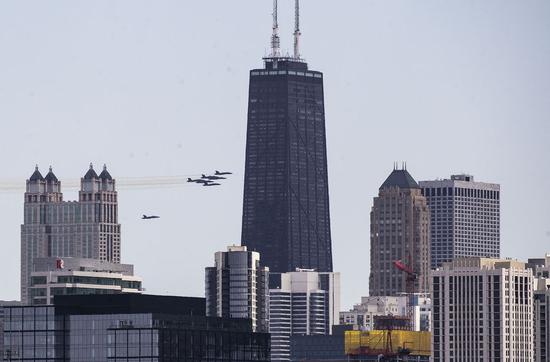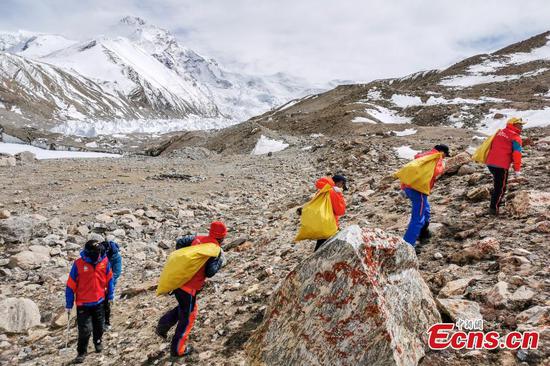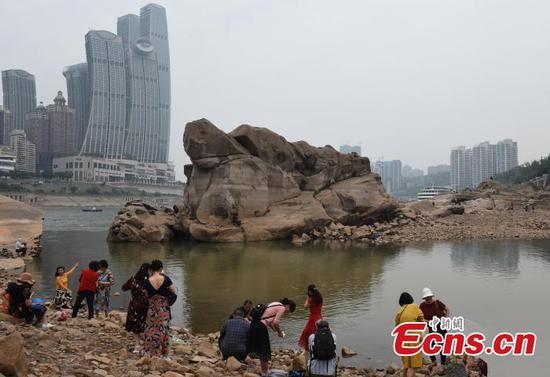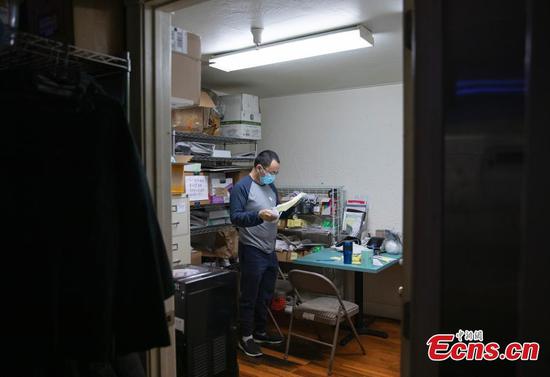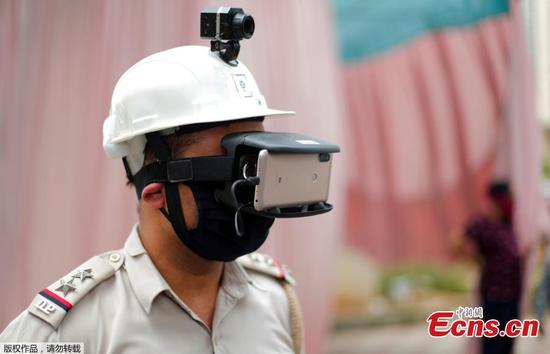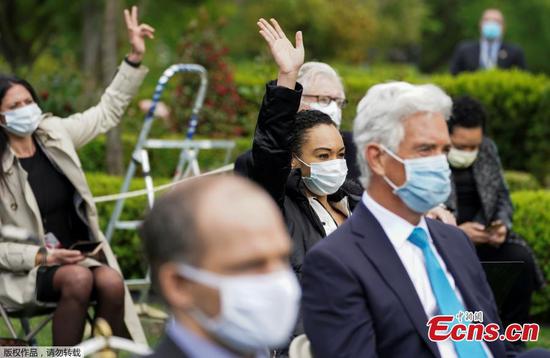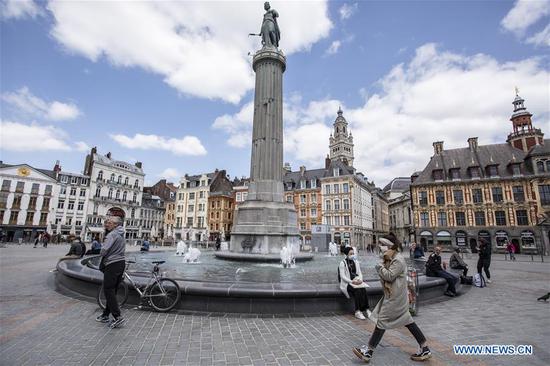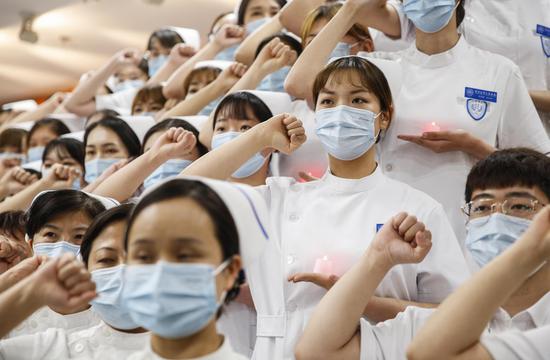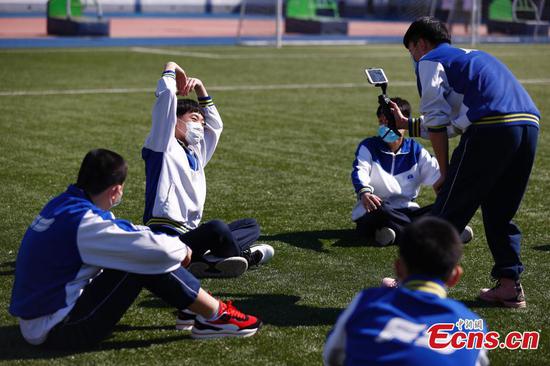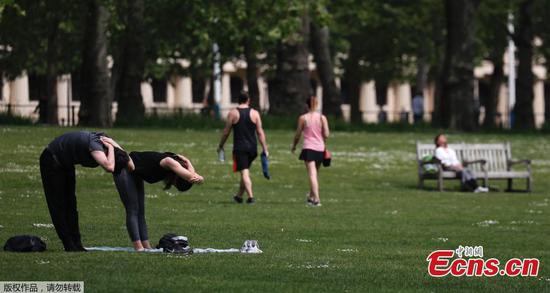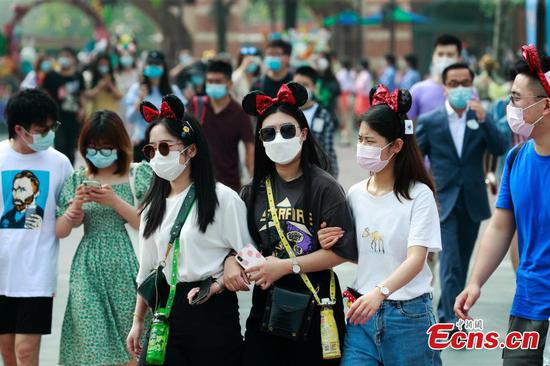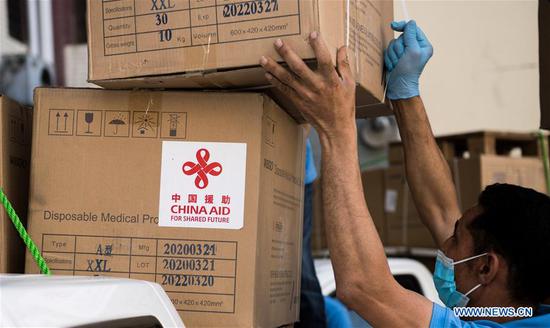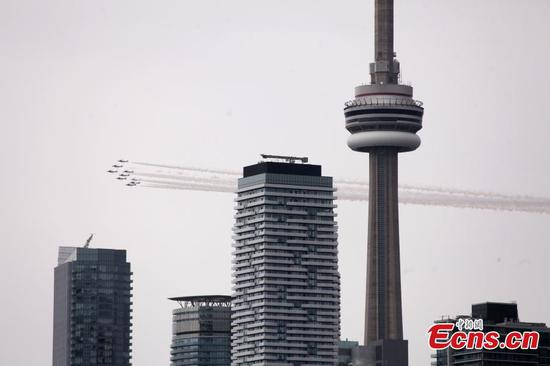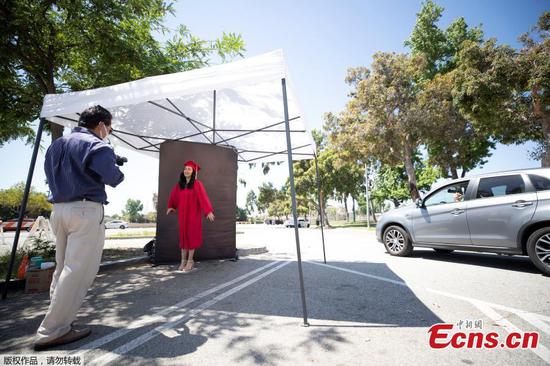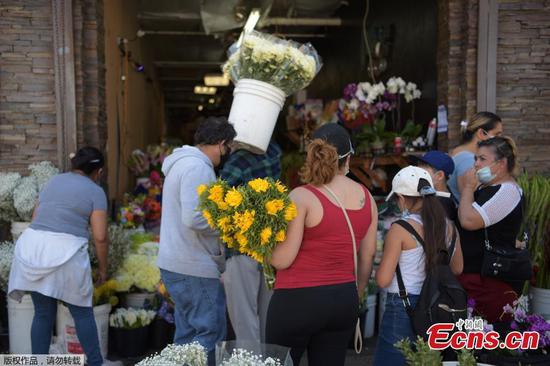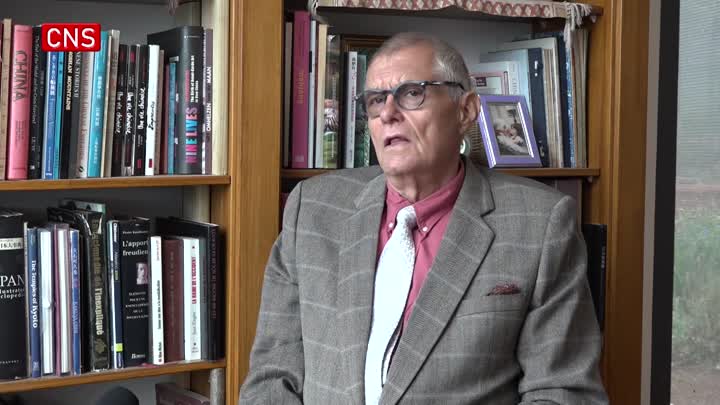Workers unable to earn a living amid lockdown to be paid until October
Workers in the United Kingdom who have been unable to earn a living because of the novel coronavirus lockdown got some welcome news on Tuesday when Chancellor of the Exchequer Rishi Sunak announced the extension of the nation's furlough program.
Sunak, who oversees the country's finances, won widespread praise when he introduced the program soon after the government launched its lockdown at the end of March. The initiative ensures employees who cannot work from home get 80 percent of their wage from the government, up to a pre-tax maximum of 2,500 pounds ($3,087) a month.
But Sunak recently warned the 7.5 million people receiving payments that the money could dry up in June because of the expense.
On Tuesday, he said the initiative will, in fact, continue until October-although he said, starting in August, employers will be asked to contribute toward the cost.
"People up and down this country believe in the dignity of their work, going to work, providing for their families, it's not their fault their business has been asked to close or they've been asked to stay at home," he said in the nation's Parliament.
Prime Minister Boris Johnson had earlier said the program, which costs the government 14 billion pounds a month, was "one of the most remarkable features of the government's response" to the pandemic.
Angela Rayner, deputy leader of the official opposition, the Labour Party, said on Radio 4's Today program it was a "lifeline" for many families.
Later, during the government's daily news briefing, Business Secretary Alok Sharma said there will also be more flexibility in the furlough program in the future "to support workers as they return to work".
He also described the government's fluid blueprint for relaxing the lockdown during the coming months, saying: "If everyone stays alert and follows the rules, we can control the coronavirus."
Sharma said there had been an additional 627 deaths from the novel coronavirus-caused COVID-19 respiratory disease, taking the total to 32,692.
And he said the nation conducted 85,293 swab tests during the preceding 24-hour period, somewhat short of the target of at least 100,000 tests a day, which is a key part of the monitoring effort that will follow any relaxation of the lockdown.
Earlier, Johnson said he does not expect workers to stampede back to their places of employment following his announcement on Sunday that those who cannot work from home should consider returning.
He said the change amounted to "baby steps" taken to ease the lockdown but noted people should only return to work if they can do so safely.
"It's only on that basis we will encourage people to go back to work if they can't work from home," he said.
Health Secretary Matt Hancock explained on the televised morning news show BBC Breakfast that everyone who can work from home must still do so.
"Obviously, that's the safest place to work," he said.
But the Labour Party said Johnson was putting blue-collar workers at risk.
The Financial Times quoted Ed Miliband, Labour's business spokesperson, as saying: "Workers in manufacturing and construction are being told to go out to work while those in the highest-paid professions are far more likely to be able to work from home. It's incumbent on government to provide the highest safety standards for those workers."
The dispute was made worse by a new Office for National Statistics study that shows men working in some blue-collar jobs are more than twice as likely to die from COVID-19 as men of the same age in the general population. Taxi drivers and security guards are at the top of atrisk professions.
The ONS also said on Tuesday that 40 percent of the UK's COVID-19 deaths had happened in care homes.
Employers finally got their hands on new government advice on Tuesday suggesting adaptations to work places that would minimize risk. The advice includes guidance around social distancing, staggering start times, erecting screens between workers, ensuring additional cleaning, and avoiding the need for people to walk past coworkers.
The document was welcomed by the Trades Union Congress, a national federation of unions that collectively represent 5.6 million people but Frances O'Grady, the organization's general secretary, said in a Twitter message that it was overdue and lacking in advice about which workers require personal protective equipment.
The government has also published new advice for the public that includes a suggestion that people wear some sort of face covering when using public transport and while visiting shops. People are now allowed to drive long distances to visit outdoor open spaces. And all people aged 70 and older have been told to minimize their contact with others. In addition, the 60-page document calls on people to regularly wash clothing, and to ensure doors and windows remain open in communal spaces.
Meanwhile, the Financial Times newspaper reports that one of Britain's top intelligence officials will oversee the nation's new five-point novel coronavirus threat-monitoring system because of its similarity to one the nation uses to assess the risk from terrorism.
Tom Hurd, who is in charge of the UK's counter-terrorism strategy, will set up the Joint Biosecurity Centre that will administer the new system.
And with the UK having recently said it will require travelers from overseas to submit to 14 days of quarantine after entering the UK, an open letter signed by the chief executives of easyJet, Heathrow Airport, and Gatwick Airport, has been sent to the government asking how they can be expected to operate with such an impediment in place. They say the quarantine requirement created "collective and serious concern and frustration".
In Germany, the scientific body that advises the government on the outbreak said it is not concerned about a recent rise in the so-called reproduction rate of the virus, following a relaxation of lockdown measures.
The Robert Koch Institute said it would only be worried if the rate rose significantly higher than 1.2 for several consecutive days.
Russia said on Tuesday it now has more than 232,000 confirmed cases, which is the second-highest national total after the United States.









